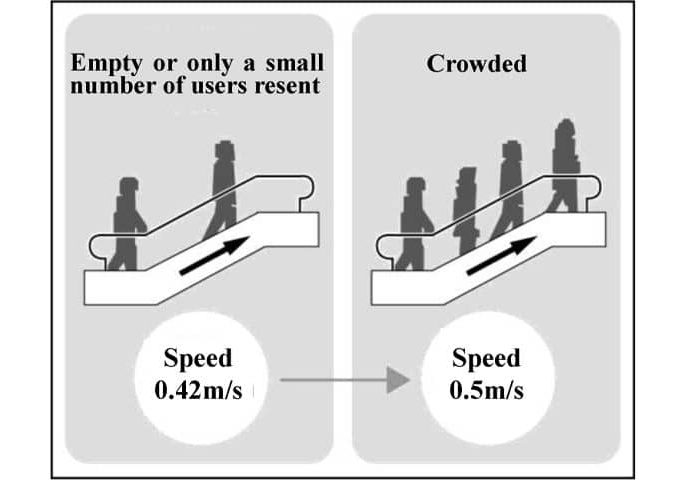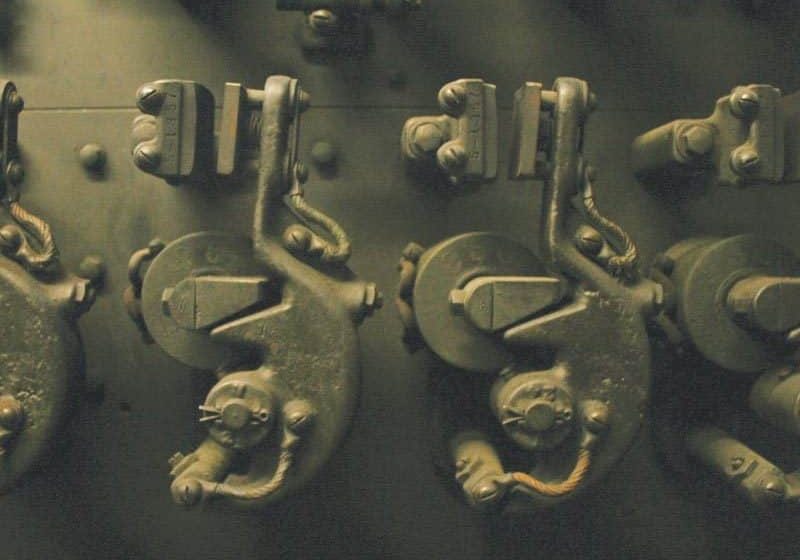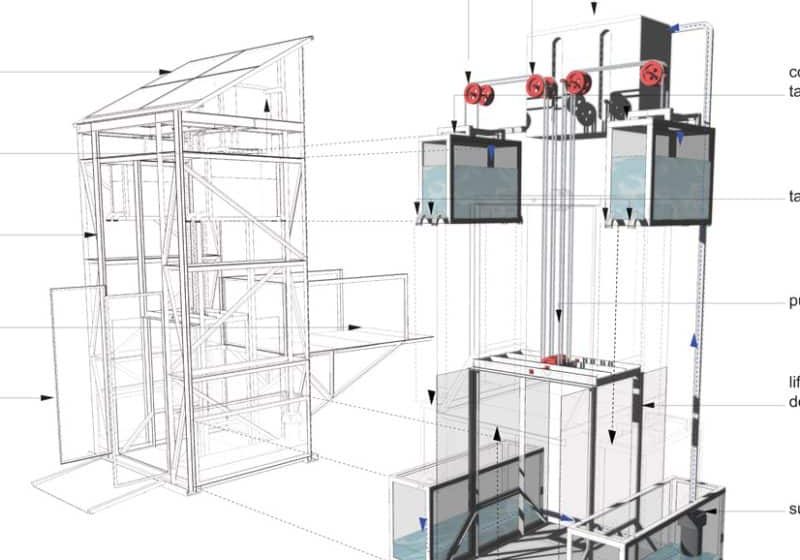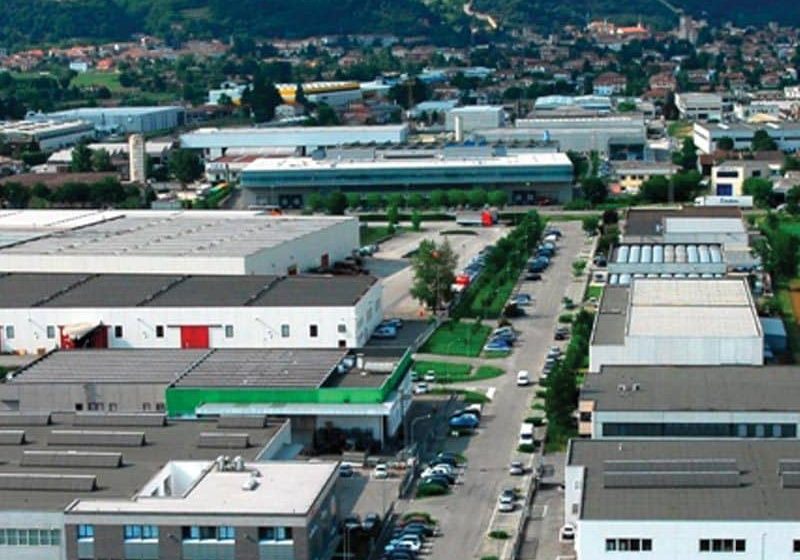Elevadores Atlas – Schindler’s Green Industrial Unit
Apr 1, 2011

It has been worthwhile to revisit Atlas Schindler’s premises in Londrina, Brazil, after several years (ELEVATOR WORLD, April 2005). Even though the building is basically the same, the manufacturing processes have been reorganized. Significant changes focused on logistics, automation and sustainability have also taken place to help it run more efficiently and environmentally friendly.
Atlas Schindler: Environmentally Committed
Londrina (“Little London”) has 600,000 inhabitants and is in the north of Paraná State. Atlas Schindler sits on a hilly site that overlooks a sloping, green landscape.
The factory began operation in 1998, one year before the merger between the Schindler Group and Elevadores Atlas of Indústrías Villares. After 12 years, Elevadores Atlas Schindler has doubled its production capacity. In addition, it has developed a social-environmental program that classifies it as a “green factory,” after the implementation of modern processes for the reduction of residues on its 32,000-square-meter premises.
In sync with the market needs, the factory has been equipped with technologies that allow for the sustainable growth of Atlas Schindler. The significant increase in production goes hand in hand with the reduction of industrial residues, promoting recycling and removing painting tunnels and welding which can sometimes cause contamination. The joint effort of Atlas Schindler’s employees and management, (who analyze and suggest improvements), has resulted in cleaner and safer environment-related processes. As a result, painting cabins and welding have been removed from the site. This provided a significant reduction of waste, and the complete elimination of chemical residues. Moreover, the company uses reforested wood for packaging, recycled fluorescent lamps, aluminum and batteries and reuses rainwater. The program allowed for 30% energy reduction and 70% savings in water usage. The external suppliers also play an important role in the sustainable development of the factory. They must be International Standards Organization (ISO) environmentally certified and are stimulated to comply with Atlas Schindler’s social-environmental commitment through awards.
Revisiting the Factory
Londrina is one of the 10 industrial units of the Schindler Group that focuses on the manufacture of elevators, escalators and moving walks. It is responsible for the production of the machine-room-less Schindler 3100, 3300 and 5300; the Neolift models for large residential buildings; as well as escalators and moving walks that are marketed in Brazil and other parts of Latin America.
Your reporter was received by José Carlos Lusquiños, Elevadores Atlas Schindler’s Industrial Director, on the occasion of her second visit to the premises. The general presentation of the industrial unit was followed by a detailed tour of the factory during which the production organization was enthusiastically explained by Lusquiños, who patiently answered all questions, while walking among escalators, robots, machines, and other high-tech machinery.
The following is a summary of the event dialogue:
EW: How is the factory organized today?
José Lusquiños (JL): The Schindler Group transports 900 million people per day. To meet such a lift demand with reliable equipment, the focus must be placed on logistics to get an efficient, fluent development of the production process. Our goal is to make the best out of machinery, manpower and time without overlooking safety and protection of the environment. To achieve this aim, production is often relocated on the premises. Now, the building is divided into five production units that are fed with raw material and components at one end. The shipping area, on the opposite end, is always busy with trucks ready to transport the finished elevator, escalator or moving walk. In each unit, we manufacture electronic controls, traction machines and safety devices, doors, frames, cabs, escalators and moving walks. An engineer is responsible for each unit.
EW: The magazine – where steel sheets are stored – was the only robotized section years ago. What other processes have been automated?
JL: We had an automated supply of the steel sheets to manufacture the elevator doors and cabs. Now we have robotized the whole process of sheet transportation from the magazine to the assembly sector, and the door and cab panel bending and handling. The painted panels (we have removed the painting cabins) are automatically screwed into cabs or frames. We have no more welding. The employees only supervise and control the process.
EW: How do you guarantee machine quality and the reliability of safety devices?
JL: As you can see, we still manufacture many geared machines and their components. Each is checked before and after assembly, paying attention to vibration that must be reduced to a minimum to guarantee a comfortable ride. The governors are assembled and electronically controlled. All the safety devices are ISO certified in Brazil and Spain. Even though the standards do not require certification of the governor pulley, we certify it to avoid problems on the field. In regards to the safety gears, we always provide the bidirectional progressive model. Because it is a global product, we have no difficulties when we export the elevator. In Brazil, the safety gear must be progressive for a speed over 45 mpm. Since the volume is so small, we use progressive safety gears for all the equipment.
EW: Outsourcing is a common practice. Which products do you outsource, and how do you organize the supply?JL: We outsource some components and items that require special manufacture. Here, logistics plays an important role. Most of our suppliers are located in Londrina and the farthest is just 100 miles away. For example, some components are stored here, in our storehouses, because we provide storage room for fast provision according to our delivery terms, but Atlas Schindler does not have a stock – the supplier has it.
EW: How do you meet delivery terms?
JL: We manufacture the elevator when the sales contract is signed. The purchase order and delivery date are entered into the electronic system, and we start the production. The supplier, who has signed a contract, has a guaranteed sale and must guarantee delivery of the product. It is absolutely important to meet our delivery terms, because we are not just shipping equipment; we must provide reliable customer service during installation. The equipment must be installed on time.
EW: What kind of system do you apply to improve quality?
JL: Each business unit has a program called “Hour of Quality Program” to be fulfilled. The performance of each unit can be followed by the employees in all the other units. The goal is not only quality, but also safety, costs and better working conditions. At the end of the year, units receive a variable extra payment or prizes according to the achievement.
EW: Could you describe Atlas Schindler’s commitment to social activities?
JL: This industrial unit develops different courses led by employees who volunteer to teach other colleagues who volunteer to learn a wide range of subjects under the motto “Organization that teaches, organization that learns.” In Londrina, the company helps the Centro Educacional Agapé Smith (CEPAS) that looks after 250 children in disadvantageous situations. They visit the sport and entertainment areas near the factory so that they can envision a better future. Since 2007, the company has also supported the project “Mini Company Junior Achievement Paraná,” a private entity in Paraná that aims at stirring an entrepreneurial spirit in young pupils to stimulate their personal development and facilitate their access to the labor market. These programs are led by our employees, and the success depends on them.
The Company’s Position in Brazil
Elevadores Atlas Schindler S.A. is a member of the Schindler Group with a 130-year-plus worldwide presence. In Brazil, in addition to the Londrina premises, it has a plant in São Paulo dedicated to the production of small components. With more than 2,500 technicians and attendance offices distributed across the country, the company offers quick maintenance and repair of elevators, escalators and moving walks. Modernization is also an important goal, considering the relevance of technological and aesthetic renewal. In this area, the Miconic 10 (call system for traffic handling), and BioPass (digital biometry system) that allows the elevator to recognize the passenger’s identity are attractive tools for new installations and refurbishment. To date, Atlas Schindler reports more than 160,000 elevator installations in Brazil. As a leading company in the Brazilian elevator, escalator and moving-walk market (and coinciding with the country’s growth), the company has strengthened all its business lines and has been recognized with the award of several prizes for its industrial activity in Brazil. It has received 16 “Pini” prizes related to the Brazilian house building industry as the winning company in the elevator, escalator and moving walk category. In 2010, it was recognized as the best company in capital assets by the publication Exame Melhores e Maiores which evaluates growth, financial health, market share and productivity per employee. Atlas Schindler was chosen as the top company in the mechanical sector among 1,000 others by Jornal Valor Econômico, an important economic and business publication in the country.
Get more of Elevator World. Sign up for our free e-newsletter.







